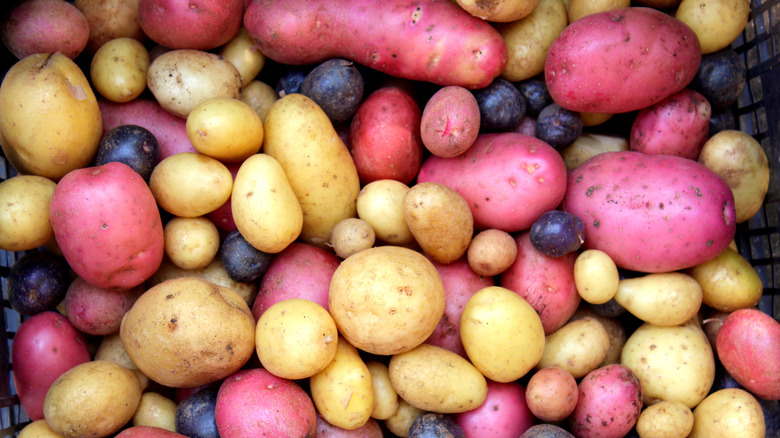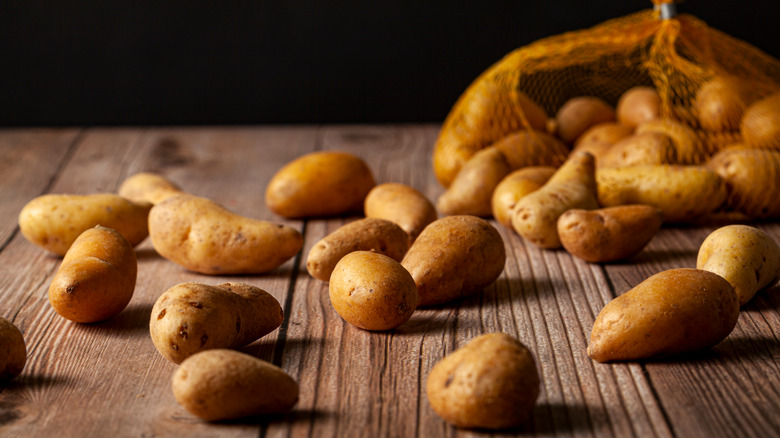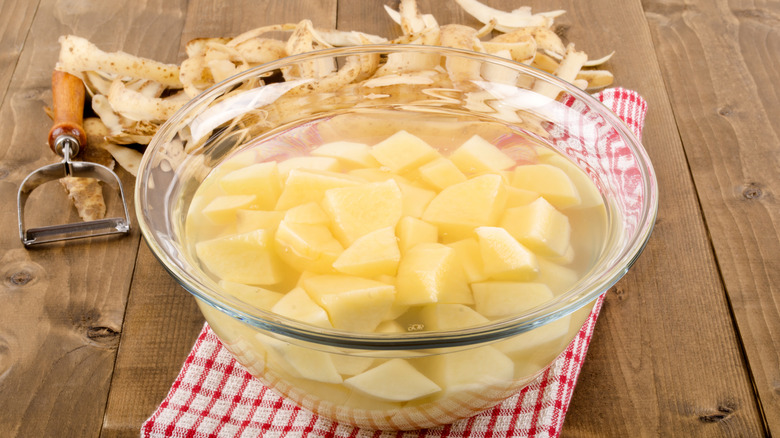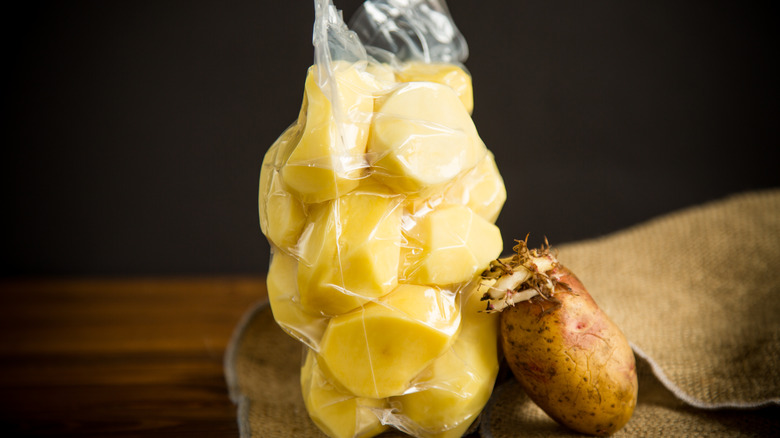The Best Ways To Keep Potatoes Fresh
If there's one pantry staple you should always have on hand, it's probably potatoes. The starchy spuds are so incredibly versatile and can please even the pickiest of eaters. Whether you like to slice them for a crisp oven-baked dish, boil them for mashed potatoes, or do nothing more than bake them to enjoy the inside and a crunchy skin, the options are seemingly endless. But few things are worse than pulling your potatoes out only to find they have gone bad or have little sprouts growing everywhere.
According to Rural Sprout, potatoes that have been exposed to light can develop skin that has a greenish hue. It's important to avoid eating potatoes that have such spots because they are actually toxic. That is why everyone should know exactly how to store their potatoes so they keep fresh and can last for months to come. Not to mention, it will help eliminate food waste, which is an added bonus.
Keep your potatoes in the pantry
While Rural Sprout suggests that a root cellar or a place that isn't exposed to light or moisture yet still has some air flow and a cool temperature without freezing is the best place to store your potatoes for up to eight months, many people probably don't have access to something like that. But even if you don't have a place to store tons of potatoes for the long haul, chances are you can recreate the same conditions to prolong the life of your spuds.
Whether you grew them yourself and have cured them or simply have too large a bag from the grocery store, you can store your potatoes well using your pantry. According to Food52, you can place potatoes in a paper bag or a container that still allows for some air flow. But you need to take a few things into consideration. The spuds should never be near other fruits like bananas or apples, nor should they be stored with onions. Those kinds of produce can actually cause potatoes to spoil more quickly.
If you have a garage, shed or another place that is cool, dark, and dry, potatoes can be stored there since the space can act as a root cellar.
You can store your potatoes on the counter
According to Food52, potatoes do not respond well to light or moisture, so the countertop is not a place you should store whole, raw potatoes. But if you are preparing your spuds for a dish you plan to eat the same day, you might need to leave them out on the counter for a while. Fortunately, there is a way to prepare your potatoes in advance so you can get more prep work done ahead of time.
One way to protect potatoes that have already been peeled, sliced, or diced is to place them in a bowl and cover them completely with water, according to Healthline. This will prevent browning on the outside of the potatoes while they sit out.
You can also vacuum-seal potatoes that have been cut to prevent spoiling too. However, this is not the best option for long-term storage and extends the life of your potatoes for just one week if put in the refrigerator.
Freezing is another potato storage option
While you likely will not have much luck storing whole potatoes in the freezer for the long term, you can utilize the appliance for potatoes that have been somewhat processed or prepped. According to Rural Sprout, potatoes that are stored in the freezer can last up to a year. It's certainly a great way to keep potatoes good for a long time as well as cut down on meal prep time — but you will need to put in the effort up front. Potatoes prepared and stored this way could be used for dishes like soups, mashed potatoes, roasted, scalloped potatoes, and more.
In order to store potatoes in the freezer, they need to be washed and cut however you'd like them — sliced, diced, matchstick, or otherwise. For the best results, you should vacuum-seal them in an airtight bag to prevent freezer burn. You could, however, try wrapping them in plastic wrap and placing them in another airtight container.
Whatever method you choose, the right choice of storage should really help extend the life of your potatoes.



